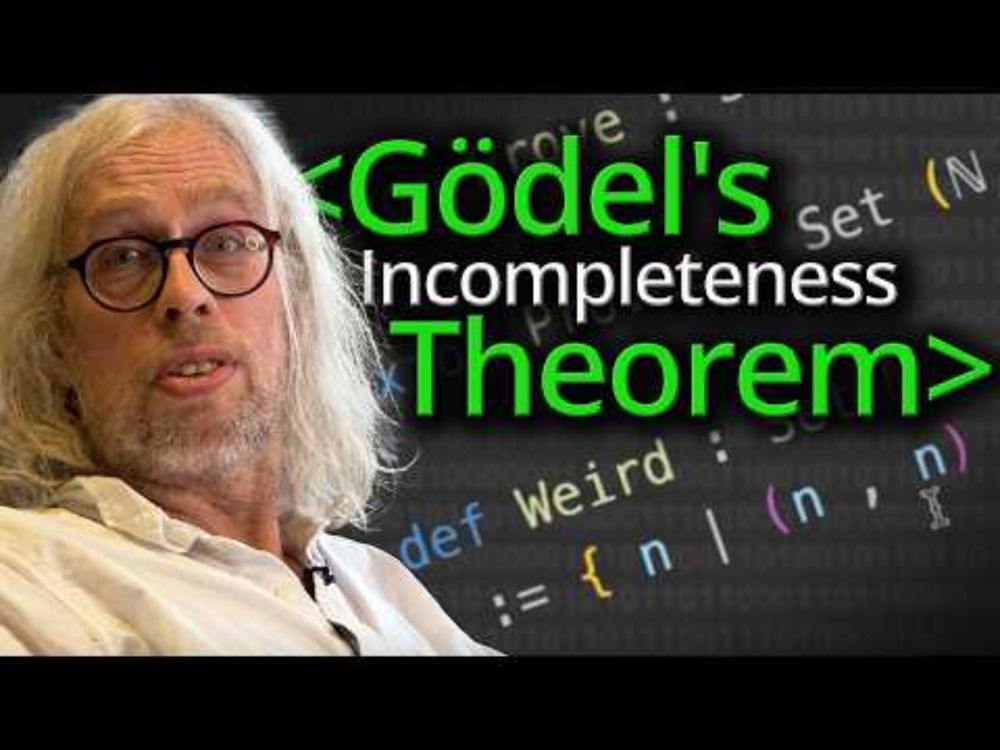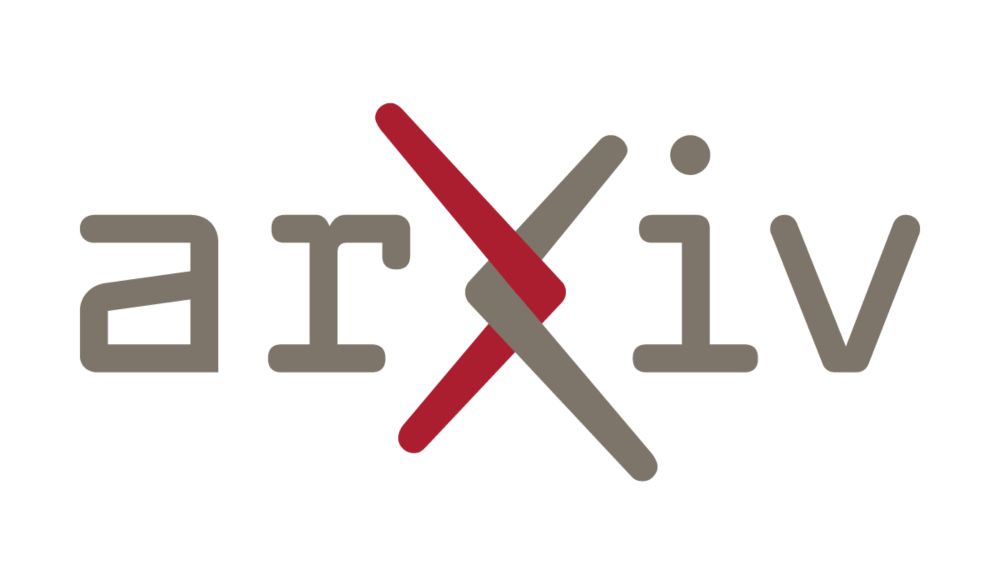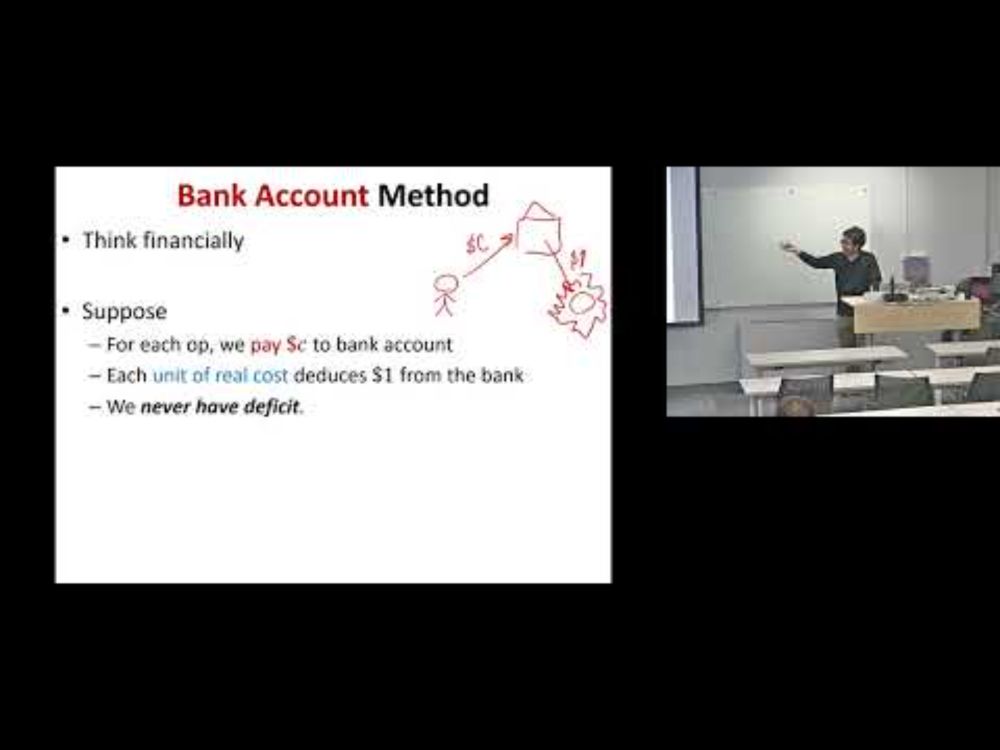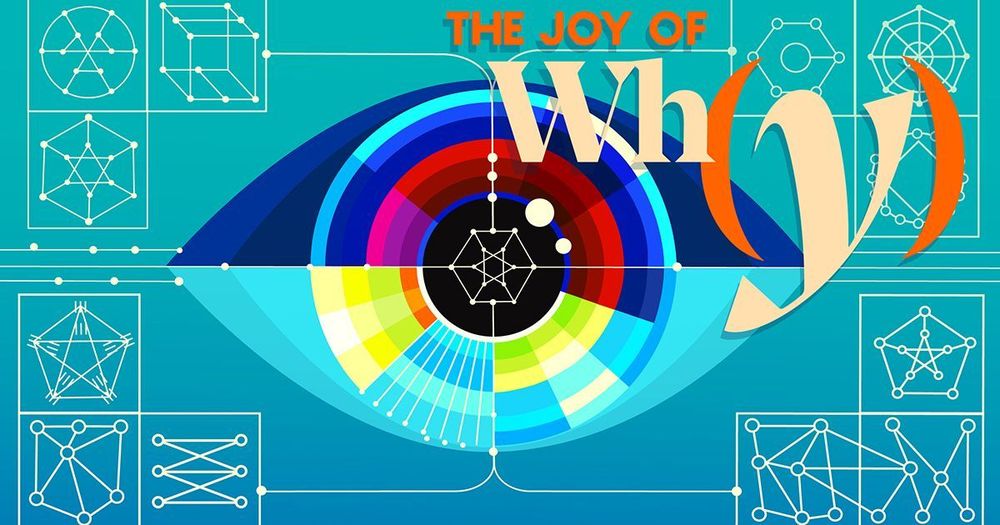To all the people mocking LLMs because it's "just matrix multiplication (linear algebra):"
Careful there! You're going to piss off the quantum physicists
10.08.2025 10:13 — 👍 18 🔁 1 💬 5 📌 0
YouTube video by Computerphile
Gödel's Incompleteness Theorem - Computerphile
Thorsten Altenkirch explains Gödel's Incompleteness Theorem on @computerphile.bsky.social, and shows some definitions in #LeanLang! 🎯
Watch here: www.youtube.com/watch?v=IuX8...
06.08.2025 13:46 — 👍 6 🔁 4 💬 0 📌 0
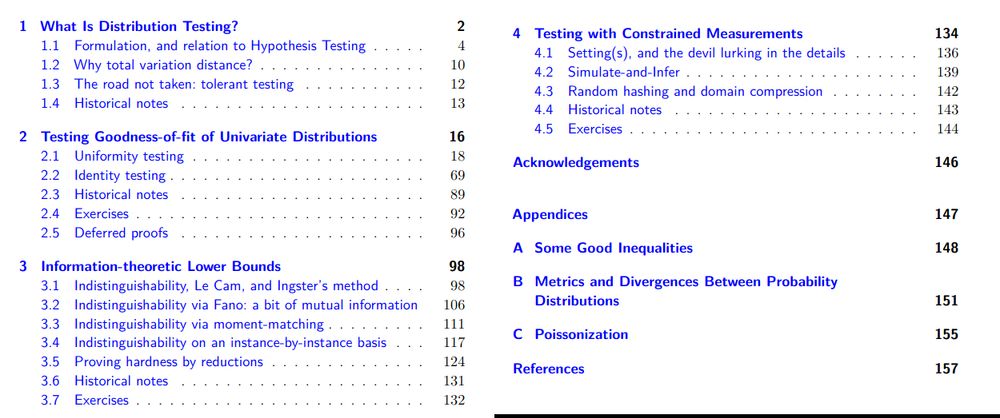
Table of contents of the monograph
Reminder/plug: my graduate-level monograph on "Topics and Techniques in Distribution Testing" (FnT Comm. and Inf Theory, 2022).
📖 ccanonne.github.io/survey-topic... [Latest draft+exercise solns, free]
📗 nowpublishers.com/article/Deta... [Official pub]
📝 github.com/ccanonne/sur... [LaTeX source]
15.11.2024 20:02 — 👍 63 🔁 7 💬 3 📌 0
YouTube video by Thatchaphol Saranurak
Lecture 4.1: Amortized Analysis: Bank account method, Binomial heaps, Hollow heaps
This lecture provides a gentle introduction to amortized analysis.
For experts: At the end, I explained Hollow Heaps, an optimal heap like Fibonacci heaps, but simpler! Surprisingly, I have not seen video lectures on this before.
www.youtube.com/watch?v=8mHa...
18.07.2025 16:32 — 👍 3 🔁 1 💬 1 📌 0
I must note that it would be harder to check the correctness of definitions and theorems in such an autoformalisation than review the pen and paper version in a conference.
15.07.2025 21:16 — 👍 0 🔁 0 💬 0 📌 0
This is not to say that they can’t get better at this stuff, but the bigger the formalisation effort, the less one should trust an AI with the definitions and theorem statements. And even after ensuring correctness, such a formalisation would be devoid of all the uses one could put it to.
15.07.2025 21:14 — 👍 0 🔁 0 💬 1 📌 0
In general there is a wide gap between what ML researchers achieve in experiments and how well it works in practice. In addition, there is a deployment gap. In our equational theories project we explicitly noted that modern AI was extremely underwhelming.
15.07.2025 21:13 — 👍 0 🔁 0 💬 1 📌 0
Yes. This was discussed in the lean Zulip. I don’t take it too seriously for the following reason. This tool was provided a very fine grained blueprint. I can imagine that for the typical SODA paper, even with all the prerequisite material existing in some library, it would be a 1000 pages.
15.07.2025 21:09 — 👍 1 🔁 0 💬 1 📌 0
I am inclined to believe that AI tools will have the same effect on formal proofs. They might take users to intractable proof states and give up when used or modify definitions incorrectly to get proofs accepted.
14.07.2025 15:39 — 👍 0 🔁 0 💬 0 📌 0
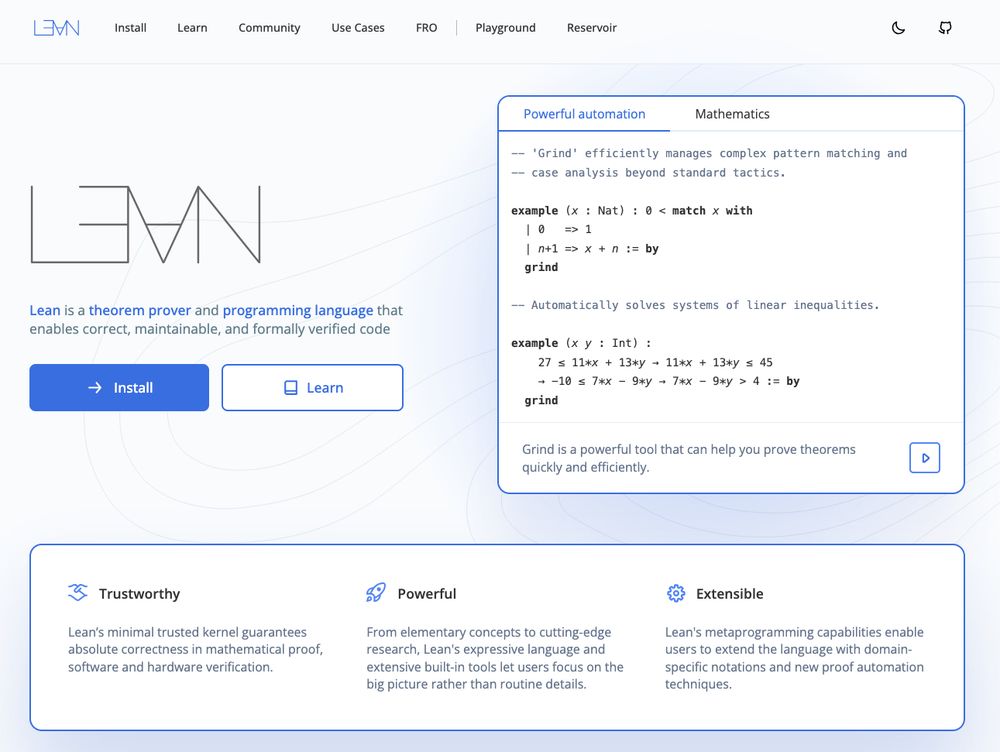
📣 We're excited to share the new lean-lang.org!
Relaunching our website was a key deliverable in our Year 2 roadmap to provide "improved navigation and access to valuable content, resources, and tools." We hope you like it!
#LeanLang #LeanProver
07.07.2025 21:02 — 👍 28 🔁 10 💬 2 📌 1
YouTube video by Macclesfield Museums
Binary and the Jacquard Mechanism - demonstration
I finally understand the mechanism of the Jacquard loom. Still cannot fathom how designers program the holes.
youtu.be/pzYucg3Tmho
06.07.2025 21:46 — 👍 0 🔁 0 💬 0 📌 0
Shared Randomness Helps with Local Distributed Problems
Our ICALP 2025 paper is now available here! We present the first example of a locally checkable labeling problem that becomes much easier to solve with distributed algorithms if you have access to shared randomness.
doi.org/10.4230/LIPI...
30.06.2025 22:31 — 👍 3 🔁 2 💬 0 📌 0
*most of the reasons that I am referring to stem from academic publishing culture operating across a number of subfields of CS
29.06.2025 18:05 — 👍 0 🔁 0 💬 0 📌 0
We didn’t do it till now for reasons that have nothing to do with AI. It is a confluence of a number of factors, too long to list here. We are able to consider a formal algorithms library at this point because a lot of metaphorical stars are aligned right now.
29.06.2025 18:03 — 👍 1 🔁 0 💬 1 📌 0
And the community needs to recognise that this is actually research into its own concepts and methodologies. A reappraisal in the same sense that Cauchy and co put calculus on firm foundations. That’s basically non existent right now.
29.06.2025 17:53 — 👍 0 🔁 0 💬 0 📌 0
I am not optimistic about implementations. A lot of theory is simply not implementable in a practical sense. Even to empirically establish asymptotics we would need humongous input instances. However this might result in a reappraisal of the value of chasing asymptotics to no end (Goodhart’s law).
29.06.2025 17:48 — 👍 2 🔁 0 💬 0 📌 0
This is in some sense an intermediate abstract specification that an implementation of an algorithm “refines”. We commonly call this pseudocode.
29.06.2025 17:44 — 👍 0 🔁 0 💬 0 📌 0
But all this requires a unified library a la mathlib. Not one thousand different and fragmented formalisations (which is the case in PL). It requires searching for common patterns and expressing them with good definitions.
29.06.2025 17:39 — 👍 0 🔁 0 💬 1 📌 0
Closely related to this, our literature is a complete mess at this point. I see so many models of computing which need to have their definitions nailed down. Further, there is literature search. When formalizing in lean, I often search for existing theorems automatically.
29.06.2025 17:38 — 👍 0 🔁 0 💬 1 📌 0
That being said I am not wholly on board the notion that AI will ever usefully autoformalize papers. For the algorithms community, the real utility in formalisation is to actually understand and extract useful abstractions and reuse theorems and “algorithmic technicques” more effectively.
29.06.2025 17:34 — 👍 0 🔁 0 💬 1 📌 0
The first thing we need to accept is that our field is not about implementable algorithms. Trying to formalise implementations is quite simply infeasible. Instead we need to recognise that we write what someone on the lean server helpfully called combinatorial procedures.
29.06.2025 17:32 — 👍 1 🔁 0 💬 2 📌 0
I am actually working on solving this problem to be upfront.
29.06.2025 17:30 — 👍 0 🔁 0 💬 1 📌 0
I don’t think lean rules out anything in TCS
29.06.2025 17:29 — 👍 0 🔁 0 💬 1 📌 0
This problem of brittleness in over powerful automation and difficulty of debugging them is already familiar to users of SAT and SMT solvers. If we create a suitable modular structure for our proofs, then we can expect to contain this brittleness. But this still requires formalisation to work.
26.06.2025 21:44 — 👍 0 🔁 0 💬 0 📌 0
The ideal use case is where someone has laid out a blueprint for the proofs down to the lemma hierarchy. Then automation can be used to fill in proofs of lemmas in seconds where a human user could still spend a few hours to write out the proof formally if the automation fails.
26.06.2025 21:40 — 👍 0 🔁 0 💬 1 📌 0
There are serious drawbacks to relying on overpowerful Blackbox automation. What we really need is composable automation whose effects are bounded and limited so that we can debug when something goes wrong.
26.06.2025 21:37 — 👍 0 🔁 0 💬 1 📌 0
I can’t predict these numbers currently. Two examples : In Terry Tao’s video from our ETP, the AI often dropped him into super difficult spots. In Alex Kontorovich’s formalisation of a conjecture statement, the AI had him convinced that he got it right leaving behind subtle but critical bugs.
26.06.2025 21:36 — 👍 0 🔁 0 💬 1 📌 0
Professor of Computer Science at Cambridge.
Editor, @prospectmagazine.co.uk / Former EiC the Guardian/ @reutersinstitute ARusbridger.com/ Speaking: karen@chartwellspeakers.com.
Mathematician at UCLA. My primary social media account is https://mathstodon.xyz/@tao . I also have a blog at https://terrytao.wordpress.com/ and a home page at https://www.math.ucla.edu/~tao/
Assistant Professor at the Department of Computer Science, University of Liverpool.
https://lutzoe.github.io/
Senior Lecturer #USydCompSci at the University of Sydney. Postdocs IBM Research and Stanford; PhD at Columbia. Converts ☕ into puns: sometimes theorems. He/him.
The CISPA Helmholtz Center for Information Security is a German national Big Science Institution within the Helmholtz Association. We research information security in all its facets.
Assistant Professor at the University of Michigan.
I design fast graph algorithms in dynamic/distributed/local settings.
https://sites.google.com/site/thsaranurak/
TCS+ is the original online seminar in theoretical computer science, committed to the carbon-free dissemination of ideas across the globe since 2013. Talks from the cutting edge of research in TCS, for a wide audience: https://www.tcsplus.org
Associate Professor – Department of Computer Science, Aalto University – theory of distributed & parallel computing – https://jukkasuomela.fi
Supporting the Formal Mathematics revolution
Official account of the Max Planck Society. Devoted to basic #research in #physics #astronomy #chemistry #biology #earthsciences #materialscience #mathematics #socialsciences and the #humanities; Imprint: https://www.mpg.de/imprint
Deutschlands größte Wissenschaftsorganisation
Webseite: https://www.helmholtz.de
Mastodon: https://helmholtz.social/@helmholtz
Impressum: https://www.helmholtz.de/socialmedia
Forschen für die beste der möglichen Welten.
Website: https://www.leibniz-gemeinschaft.de/
Impressum: https://www.leibniz-gemeinschaft.de/impressum
Cutting-edge research, news, commentary, and visuals from the Science family of journals. https://www.science.org
Illuminating math and science. Supported by the Simons Foundation. 2022 Pulitzer Prize in Explanatory Reporting. www.quantamagazine.org
Computer Vision and Machine Department at the Max Planck Institute for Informatics | https://www.mpi-inf.mpg.de/departments/computer-vision-and-machine-learning/
Official account of the MPI for Informatics in Saarbrücken. Our goal is to advance foundational research and drive innovation in key areas of computer science.
Imprint: https://imprint.mpi-klsb.mpg.de/inf/www.mpi-inf.mpg.de?lang=de
